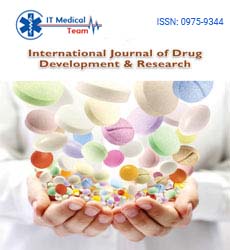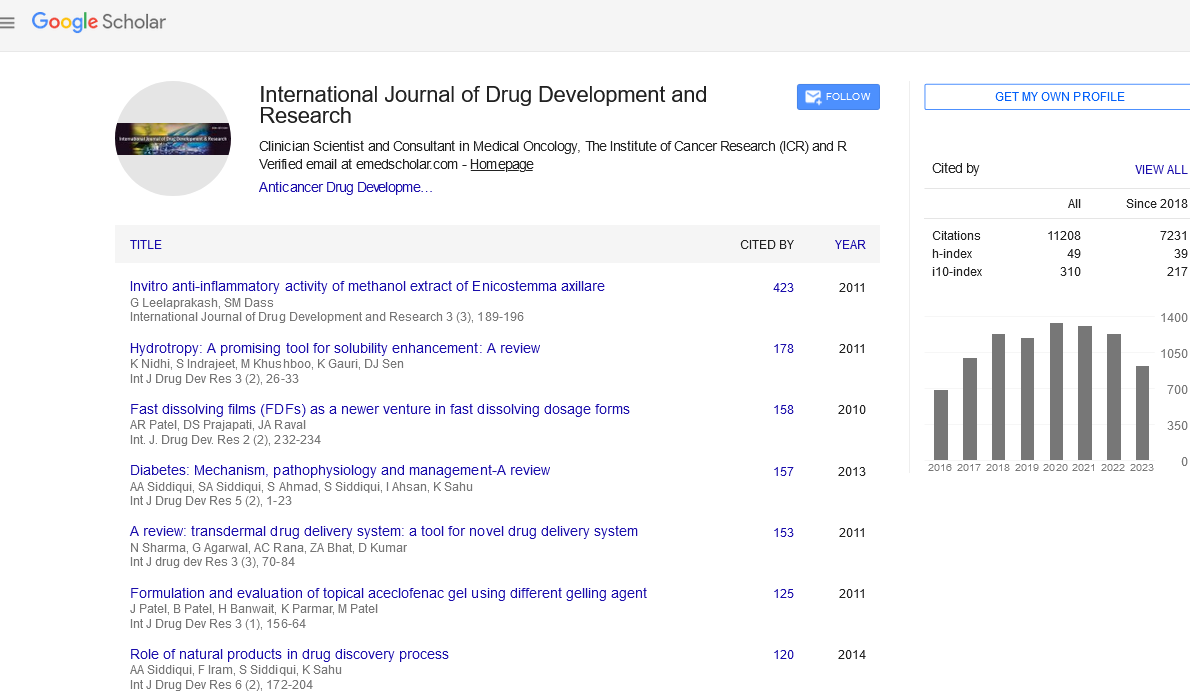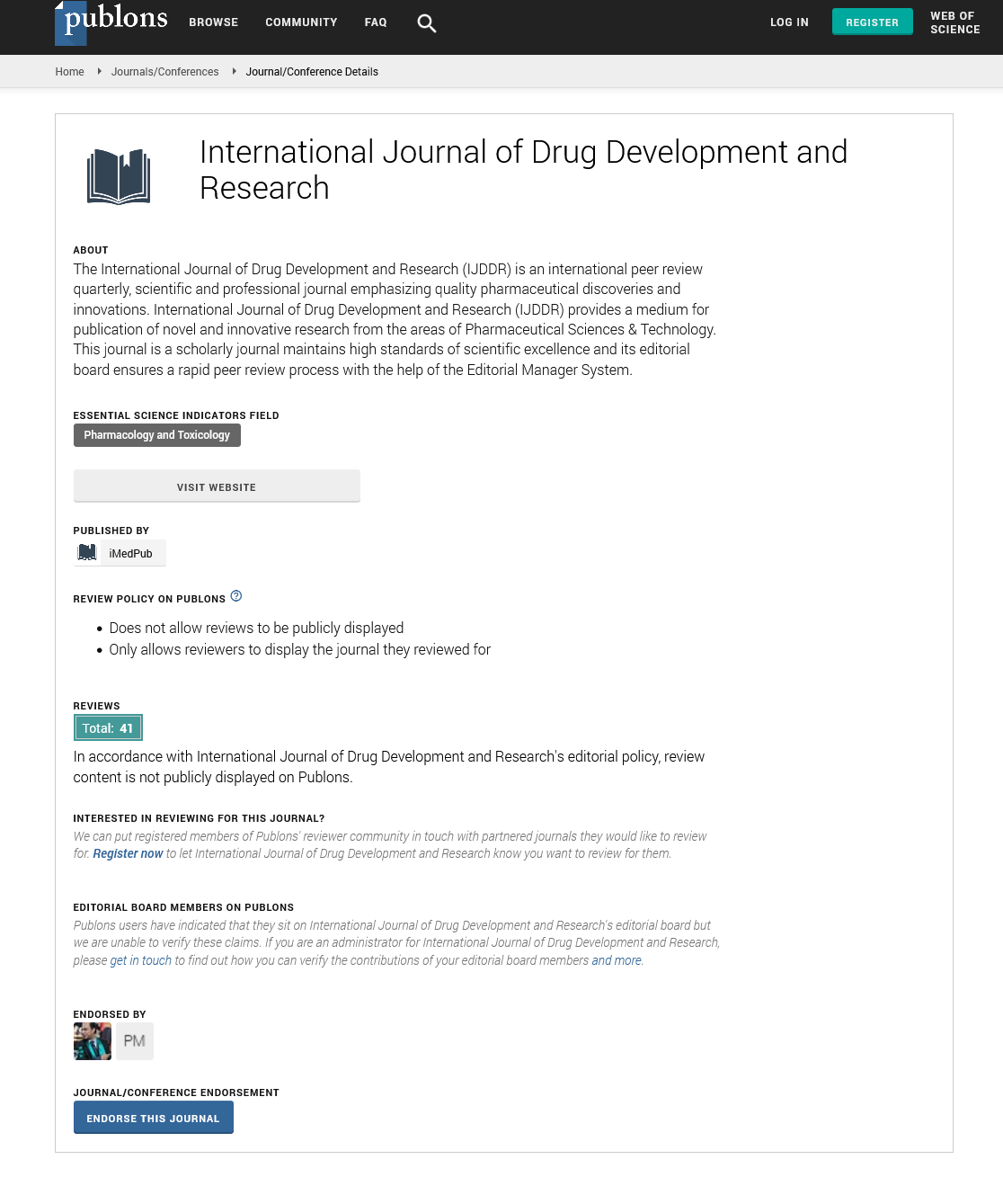Perspective - (2024) Volume 16, Issue 2
Immunotherapy Unleashed: A Paradigm Shift in Cancer Treatment
Yoang Jang*
Department of Immunology, Federal University of Parana, Curitiba, Brazil
*Correspondence:
Yoang Jang, Department of Immunology, Federal University of Parana, Curitiba,
Brazil,
Email:
Received: 12-Mar-2024, Manuscript No. IJDDR-24-14622;
Editor assigned: 14-Mar-2024, Pre QC No. IJDDR-24-14622 (PQ);
Reviewed: 28-Mar-2024, QC No. IJDDR-24-14622;
Revised: 08-Apr-2024, Manuscript No. IJDDR-24-14622 (R);
Published:
15-Apr-2024
Introduction
Immunotherapy, once a theoretical frontier, has become a
cornerstone in the fight against cancer. Unlike traditional
treatments that directly target cancer cells, immunotherapy
harnesses the power of the body's immune system to seek out
and destroy cancer cells. This groundbreaking approach has
ushered in a new era of hope for patients, offering the potential
for durable responses and improved quality of life. In this article,
we delve into the remarkable journey of immunotherapy,
exploring its mechanisms, successes, challenges, and the
transformative impact it holds for cancer patients worldwide.
Description
Understanding immunotherapy
At the heart of immunotherapy lies the concept of unleashing
the body's own defense mechanisms against cancer. Various
immunotherapeutic strategies have emerged, including immune
checkpoint inhibitors, adoptive cell therapy, therapeutic
vaccines, and cytokine therapy. Each approach targets different
aspects of the immune response, aiming to overcome the
evasion tactics employed by cancer cells to evade detection and
destruction by the immune system.
Checkpoint inhibitors: A game-changer
Among the most significant advancements in immunotherapy
are immune checkpoint inhibitors. These drugs work by
releasing the brakes on the immune system, allowing T cells to
recognize and attack cancer cells more effectively. Key
checkpoint proteins targeted by these inhibitors include PD-1,
PD-L1, and CTLA-4. The approval of checkpoint inhibitors such as
pembrolizumab, nivolumab, and ipilimumab has revolutionized
the treatment landscape across various cancer types, leading to
durable responses and long term survival for some patients.
Adoptive cell therapy: Empowering the immune
system
Another promising avenue of immunotherapy is adoptive cell
therapy, which involves engineering a patient's own immune
cells to recognize and destroy cancer cells. Chimeric Antigen
Receptor (CAR) T-cell therapy, in particular, has shown
remarkable efficacy in hematologic malignancies, with FDA
approvals for treatments like tisagenlecleucel and axicabtagene
ciloleucel. However, challenges such as cytokine release
syndrome and neurotoxicity highlight the need for careful
patient monitoring and management of treatment related
toxicities.
Overcoming challenges and expanding horizons
While immunotherapy has transformed the treatment
landscape for many cancer patients, challenges remain. Not all
patients respond to immunotherapy, and resistance can develop
over time. Research efforts are underway to identify biomarkers
predictive of response and resistance, refine treatment
strategies, and develop combination approaches to enhance
efficacy. Additionally, the high cost of immunotherapy poses
barriers to access for many patients, emphasizing the need for
continued innovation and affordability.
The future of immunotherapy
Looking ahead, the future of immunotherapy is brimming
with promise. Ongoing research efforts aim to expand the
applicability of immunotherapy to a broader range of cancer
types, improve response rates, and mitigate adverse effects.
Combination approaches, incorporating immunotherapy with
other treatment modalities such as chemotherapy, radiation
therapy, and targeted therapy, hold potential synergistic
benefits. Furthermore, the advent of novel immunotherapeutic
agents and advancements in precision medicine herald a new
frontier in personalized cancer treatment.
Conclusion
Immunotherapy represents a transformative approach in the
fight against cancer, offering newfound hope and optimism for
patients and clinicians alike. As our understanding of the
complex interplay between the immune system and cancer
deepens, so too does the potential for immunotherapy to
revolutionize cancer care. By continuing to innovate,
collaborate, and advocate for equitable access, we can realize
the full potential of immunotherapy and bring us closer to the
ultimate goal: A world free from the burden of cancer.
Citation: Jang Y (2024) Immunotherapy Unleashed: A Paradigm Shift in Cancer Treatment. Int J Drug Dev Res Vol:16 No:2






